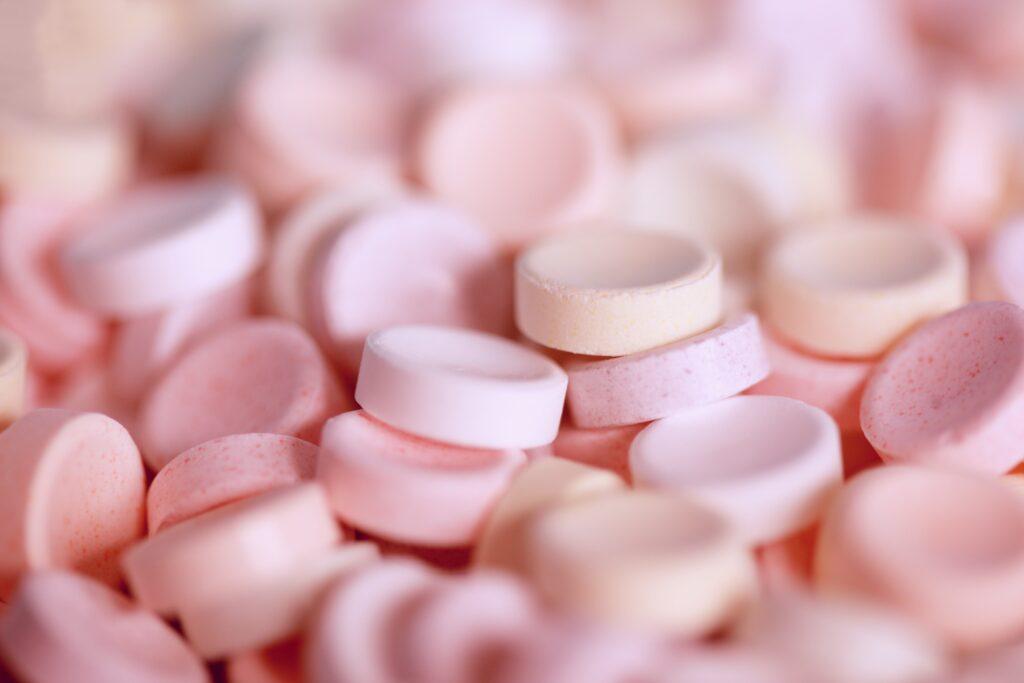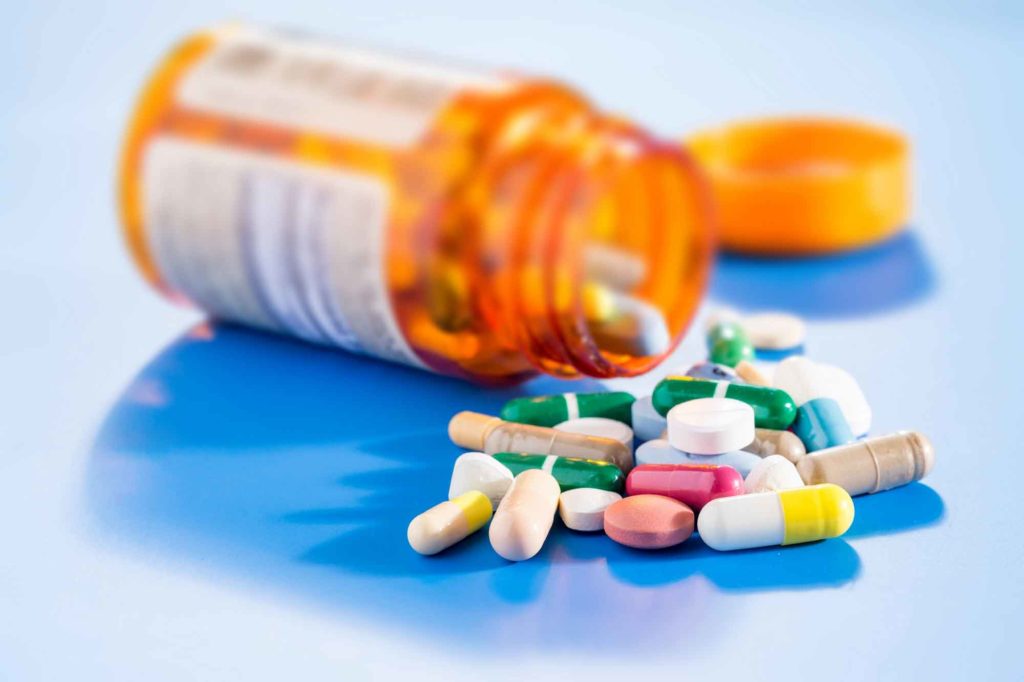Side Effects Of Benadryl Overdose
- Central Nervous System Depression: What happens if you overdose on Benadryl? An overdose of Benadryl can cause excessive sedation and drowsiness. This can lead to confusion, impaired coordination, difficulty concentrating, and even loss of consciousness.
- Cardiovascular Effects: Benadryl overdose may result in an increased heart rate, irregular heartbeat (arrhythmia), and fluctuations in blood pressure. These cardiovascular effects can be dangerous, especially for individuals with pre-existing heart conditions.
- Respiratory Distress: Excessive intake of Benadryl can cause respiratory depression, leading to shallow or slowed breathing. In severe cases, it may even result in respiratory failure, requiring immediate medical attention.
- Gastrointestinal Disturbances: Benadryl overdose can cause gastrointestinal symptoms such as nausea, vomiting, diarrhea, and abdominal pain.
- Urinary Retention: Overdosing Benadryl may lead to urinary retention, making it difficult to pass urine.
- Dry Mouth and Throat: Benadryl can cause dryness in the mouth and throat, leading to discomfort and difficulty swallowing.
- Skin Reactions: Some individuals may experience allergic reactions, including rashes, hives, or swelling, due to a Benadryl overdose.
- Vision Impairment: High doses of Benadryl can cause blurred vision, dilated pupils, and difficulty focusing.
The severity and manifestation of these side effects can vary depending on the individual and the amount of Benadryl consumed. Seek immediate medical attention if you suspect a Benadryl overdose or experience any concerning symptoms.
How Much Benadryl To Overdose?
The maximum recommended dose of Benadryl (diphenhydramine) for adults varies depending on the formulation and the country. It is crucial to follow the dosing instructions provided on the packaging or as directed by a healthcare professional. Generally, the recommended adult dose of Benadryl for allergic reactions or as a sleep aid is 25-50 mg every 4-6 hours, not exceeding 300 mg daily.
However, consulting with a healthcare provider for personalized dosage recommendations is essential based on your specific needs, medical history, and any potential interactions with other medications you may be taking. Taking excessive Benadryl beyond the recommended dose can increase the risk of side effects and potential overdose.
Benadryl Overdose Psychosis
Benadryl Overdose Psychosis refers to psychotic symptoms following an overdose of Benadryl (diphenhydramine), an over-the-counter antihistamine medication. Psychosis is a mental state characterized by losing contact with reality, resulting in hallucinations, delusions, disorganized thinking, and abnormal behavior.
When Benadryl is taken in excessive amounts, it can significantly affect the central nervous system. Diphenhydramine is known to have sedating properties and can cross the blood-brain barrier, affecting various neurotransmitters in the brain. In rare cases, an overdose of Benadryl can lead to an altered mental state and induce psychotic symptoms.
Psychosis-like symptoms associated with Benadryl overdose may include visual or auditory hallucinations, paranoia, confusion, disorientation, agitation, and extreme anxiety. These symptoms can be distressing and require medical attention.
It is important to note that Benadryl Overdose Psychosis is relatively rare, and most individuals who take Benadryl as directed will not experience such symptoms. However, exceeding the recommended dosage or intentionally misusing the medication can increase the risk of adverse effects, including psychosis-like symptoms.
Is It Possible To Overdose On Melatonin And Benadryl?
Yes, it is possible to overdose on melatonin and Benadryl (diphenhydramine). While melatonin is a hormone naturally produced by the body to regulate sleep-wake cycles, taking excessive amounts of melatonin supplements can lead to an overdose. The exact dosage at which an overdose may occur can vary from person to person. Symptoms of a melatonin overdose may include drowsiness, dizziness, headache, nausea, and changes in blood pressure. It is important to follow the recommended dosage instructions healthcare professionals provide or on the product packaging.

Skip To:
Learn More:
- Subutex vs Suboxone, What’s The Difference Between Them?
- Suboxone Addiction
- Suboxone Detox, Withdrawal Symptoms, Timeline & Treatment
- Suboxone Withdrawal Psychosis
- Does Suboxone Raise Your Blood Pressure?
- Suboxone Side Effects Sexually
- Prescription Pill Detox Program
- Prescription Drugs Addiction
- 10 Most Abused Prescription Drugs In The US
- Withdrawal Symptoms of Prescription Drugs
Get Help. Get Better. Get Your Life Back.
Searching for Accredited Drug and Alcohol Rehab Centers Near You?
Even if you have failed previously and relapsed, or are in the middle of a difficult crisis, we stand ready to support you. Our trusted behavioral health specialists will not give up on you. When you feel ready or just want someone to speak to about therapy alternatives to change your life call us. Even if we cannot assist you, we will lead you to wherever you can get support. There is no obligation. Call our hotline today.
(844) 597-1011Popular Benadryl Overdose FAQs
-
Can You Overdose On Benadryl For Humans?
Yes, it is possible to overdose on Benadryl (diphenhydramine) for humans. Taking more than the recommended dosage or intentionally misusing the medication can lead to an overdose. It is important to follow the dosing instructions provided on the packaging or as directed by a healthcare professional to avoid overdosing.
-
What is a Diphenhydramine Overdose?
A diphenhydramine overdose refers to ingesting an excessive amount of Benadryl, which contains the active ingredient diphenhydramine. An overdose occurs when the intake surpasses the safe and recommended dosage, leading to potential health complications and adverse effects.
-
How Much Benadryl Does It Take To Overdose?
The amount of Benadryl required to overdose varies depending on factors such as an individual’s weight, tolerance, and overall health. It is important to adhere to the recommended dosage instructions provided on the packaging or as a healthcare professional advises. Taking excessive Benadryl beyond the recommended dose can increase the risk of overdose. If you suspect a Benadryl overdose, seek immediate medical attention.
-
Is It Possible To Experience a Benadryl Overdose Death?
Yes, it is possible to experience a Benadryl overdose death, although it is relatively rare. An overdose of Benadryl can have serious consequences, especially if a significant amount is consumed or in cases of intentional misuse. Overdosing on Benadryl can lead to severe complications, including cardiovascular issues, respiratory distress, and central nervous system depression. Prompt medical intervention is crucial in case of a suspected overdose.
-
How To Reverse an Intentional Benadryl Overdose?
Reversing an intentional Benadryl overdose requires immediate medical attention. Call emergency services or go to the nearest emergency room without delay if you suspect an intentional overdose. Healthcare professionals will evaluate the situation and provide appropriate treatment, which may involve interventions to stabilize vital signs, gastric decontamination (such as inducing vomiting or administering activated charcoal), and supportive care to manage symptoms and prevent further complications. The specific treatment will depend on the severity of the overdose and the individual’s condition.
Benadryl Overdose Facts
What’s a Benadryl Overdose?
A Benadryl overdose is ingesting excessive Benadryl (diphenhydramine) medication. It occurs when an individual takes more than the recommended dosage, leading to potential health complications and adverse effects.
Benadryl Overdose Treatment
Benadryl overdose treatment involves seeking immediate medical attention. In the case of a suspected overdose, contacting emergency services or going to the nearest emergency room is important.
Healthcare professionals will evaluate the situation and provide appropriate treatment, including interventions to stabilize vital signs, gastric decontamination (such as inducing vomiting or administering activated charcoal), and supportive care to manage symptoms and prevent further complications.
The specific treatment plan will depend on the severity of the overdose and the individual’s condition.
Benadryl Overdose Symptoms
Symptoms of a Benadryl overdose can vary depending on the individual and the amount of medication ingested. Here are some common signs and symptoms to be aware of:
- Excessive sedation and drowsiness.
- Confusion and disorientation.
- Impaired coordination and difficulty concentrating.
- Loss of consciousness.
- Increased heart rate.
- Irregular heartbeat (arrhythmia).
- Fluctuations in blood pressure.
- Shallow or slowed breathing.
- Respiratory distress or difficulty breathing.
- Nausea and vomiting.
- Diarrhea.
- Abdominal pain.
- Urinary retention.
- Dry mouth and throat.
- Visual disturbances, such as blurred vision or dilated pupils.
Benadryl Overdose Statistics
By examining data and figures related to Benadryl overdoses, we can better understand the scope of the problem, identify trends, and raise awareness about the potential dangers associated with excessive use or misuse of this widely available medication. Through these statistics, we aim to emphasize the importance of responsible use and prompt medical intervention in cases of suspected Benadryl overdose.
8,366
In 2020, there were approximately 8,366 reported cases of exposure to diphenhydramine (the active ingredient in Benadryl) in the United States, including intentional and unintentional overdoses.
Source: AAPCC
20%
Diphenhydramine was involved in 20% of all antihistamine-related overdose deaths in the US between 1999 and 2017. The study analyzed data from the National Vital Statistics System and highlighted the significant role of diphenhydramine in fatal overdose cases.
Source: Journal of Medical Toxicology
11,706
In 2019, there were approximately 11,706 emergency department visits in the US involving diphenhydramine misuse or overdose.
Source: SAMHSA

Get Your Life Back
Find Hope & Recovery. Get Safe Comfortable Detox, Addiction Rehab & Dual Diagnosis High-Quality Care.
Hotline(844) 597-1011
Can You Overdose On Benadryl And Alcohol?
Yes, it is possible to overdose on Benadryl (diphenhydramine) and alcohol, and the combination can be hazardous. Both substances have sedative effects on the central nervous system, and when taken together in excessive amounts, they can intensify each other’s effects and increase the risk of overdose.
Benadryl is an antihistamine that can cause drowsiness and impair coordination. Alcohol is a depressant that can also cause sedation and affect cognitive function. Combining the two substances can lead to excessive sedation, respiratory depression, and impaired motor skills. It can also increase the risk of accidents, falls, and other dangerous situations.
Additionally, both Benadryl and alcohol can negatively affect the liver, and combining them can put additional strain on this vital organ. This can increase the risk of liver damage or other adverse effects.
It is important to use Benadryl and alcohol responsibly and avoid taking them together excessively. Suppose you have concerns or questions about the interactions between medications and alcohol. Consulting with a healthcare professional or pharmacist for personalized advice based on your specific circumstances is best.
First-class Facilities & Amenities
World-class High-Quality Addiction & Mental Health Rehabilitation Treatment
Rehab Centers TourRenowned Addiction Centers. Serene Private Facilities. Inpatient rehab programs vary.
Addiction Helpline(844) 597-1011Proven recovery success experience, backed by a Team w/ History of:
15+
Years of Unified Experience
100s
5-Star Reviews Across Our Centers
10K
Recovery Success Stories Across Our Network
- Low Patient to Therapist Ratio
- Onsite Medical Detox Center
- Comprehensive Dual-Diagnosis Treatment
- Complimentary Family & Alumni Programs
- Coaching, Recovery & Personal Development Events
Benadryl Overdose Treatment
Treating a Benadryl (diphenhydramine) overdose typically involves immediate medical attention. Here are some common treatments used in cases of Benadryl overdose:
- Stabilizing Vital Signs: Healthcare professionals will monitor and stabilize the individual’s vital signs, including heart rate, blood pressure, and oxygen levels. They may administer medications or interventions to address any abnormalities.
- Gastric Decontamination: If the overdose occurred recently, healthcare providers may induce vomiting or administer activated charcoal to help remove the excess Benadryl from the stomach and prevent further absorption into the bloodstream. However, this is typically done only under medical supervision and in specific situations.

- Supportive Care: Supportive care involves managing symptoms and providing necessary interventions to support the individual’s well-being. This may include administering intravenous fluids, providing oxygen therapy, and monitoring for complications or adverse effects.
- Medications: In certain cases, healthcare professionals may administer medications to counteract the effects of the Benadryl overdose or manage specific symptoms. These medications may include antidotes or medications to address cardiovascular or respiratory issues.
- Observation and Monitoring: After initial treatment, individuals who have experienced a Benadryl overdose will likely be closely observed in a healthcare setting to monitor their condition, ensure stabilization, and prevent potential complications.
It is crucial to seek immediate medical attention if a Benadryl overdose is suspected. Prompt medical intervention can help prevent further harm and increase the chances of a successful recovery.
EMS Treatment For Benadryl Overdose
Emergency Medical Services (EMS) treatment for a Benadryl (diphenhydramine) overdose typically involves the following steps:
- Assessment: EMS personnel will assess the individual’s vital signs, level of consciousness, and overall condition. They will gather information about the amount of Benadryl ingested, the time of ingestion, and any other relevant details.
- Stabilization: If the individual is experiencing severe symptoms or complications, EMS personnel will provide immediate interventions to stabilize vital signs. This may include administering oxygen, monitoring heart rate and blood pressure, and initiating intravenous (IV) access.
- Supportive Care: EMS providers will provide supportive care to manage symptoms and maintain the individual’s well-being. This may involve reassurance, maintaining an open airway, and positioning the individual appropriately.
- Transportation: In most cases, EMS personnel will transport the individual to the nearest emergency department for further evaluation and treatment. During transportation, they will continue monitoring vital signs and providing necessary interventions.
- Communication: EMS personnel will communicate with the receiving medical facility, providing them with relevant information about the individual’s condition, the suspected Benadryl overdose, and any treatments or interventions provided during transport.
World-class, Accredited, 5-Star Reviewed, Effective Addiction & Mental Health Programs. Complete Behavioral Health Inpatient Rehab, Detox plus Co-occuring Disorders Therapy.
CALL(844) 597-1011End the Addiction Pain. End the Emotional Rollercoaster. Get Your Life Back. Start Drug, Alcohol & Dual Diagnosis Mental Health Treatment Now. Get Free No-obligation Guidance by Substance Abuse Specialists Who Understand Addiction & Mental Health Recovery & Know How to Help.
We Level Up Benadryl Overdose Dual Diagnosis Treatment
The definition of dual diagnosis, also known as co-occurring disorders, can vary among institutions. Generally, it refers to simultaneously treating a substance use disorder and a mental health disorder. Treating individuals with co-occurring disorders is a crucial aspect of our inpatient treatment. Co-occurring disorders are strongly linked to substance abuse.
We create treatment plans that address withdrawal symptoms, the psychological aspects of drug use, and managing underlying mental health disorders to set clients up for success. A comprehensive mental health assessment identifies treatment possibilities. Our dual diagnosis treatment center provides access to mental health counselors, medical professionals, behavioral therapy, and medication treatment, ensuring the highest quality of care.
We understand the intricate relationship between mental and substance abuse disorders, which can result in a destructive cycle of addiction. We specialize in dual-diagnosis cases, offering the best chance for healing and long-lasting recovery.
Recognizing that you may have a mental illness can be challenging. However, treating substance abuse becomes much easier once you receive a proper diagnosis and treatment. Only qualified medical professionals can diagnose these underlying conditions. If you suspect you have a co-occurring disorder, we encourage you to seek a reputable treatment center to begin your journey to recovery. Contact We Level Up today.
Experience Transformative Recovery at We Level Up Treatment Centers.
See our authentic success stories. Get inspired. Get the help you deserve.
Start a New Life
Begin with a free call to an addiction & behavioral health treatment advisor. Learn more about our dual-diagnosis programs. The We Level Up Treatment Center Network delivers recovery programs that vary by each treatment facility. Call to learn more.
- Personalized Care
- Caring Accountable Staff
- World-class Amenities
- Licensed & Accredited
- Renowned w/ 100s 5-Star Reviews
We’ll Call You
Prescription Medication Addiction Recovery & Sobriety Story Informative Video
Jen’s Addiction Recovery Testimonial
“I wanted my life back. I was a shell of a person. I wanted to be trusted, I wanted relationships back that I lost, mainly my children and family. It started innocent enough, I got into a car accident and then I got kind of sucked into the whole, you know, medication issue with the pills. And before I knew it, I was in a cloud. I was sucked in by addiction and with my mind, I kept thinking it was OK because a doctor was prescribing this for me, a doctor was giving me this, a doctor was giving me that.
So, I didn’t think I was doing anything wrong. Level Up supports my family and my relationships with my family and they’ve helped me grown as a person. When I first started there, I was so intimidated and kind of scared, you know? But, they’ve taught me, they’ve kind of taught me how to come into my own. And then, you know, when I get the call at the middle of the day from my twenty-one-year-old daughter, just to say ‘I love you, Mom.’, that’s amazing.”
Jen’s Addiction Recovery Testimonial
Search We Level Up Benadryl Overdose Resources
Sources
- National Institutes of Health (NIH) – MedlinePlus: Diphenhydramine Overdose. Link: https://medlineplus.gov/ency/article/002636.htm
- Centers for Disease Control and Prevention (CDC) – National Center for Health Statistics: Drug Overdose Deaths. Link: https://www.cdc.gov/nchs/fastats/drug-overdose-deaths.htm
- National Institute on Drug Abuse (NIDA) – Prescription CNS Depressants. Link: https://www.drugabuse.gov/drug-topics/opioids/benzodiazepines-and-other-central-nervous-system-depressants
- U.S. Department of Health & Human Services (HHS) – Substance Abuse and Mental Health Services Administration (SAMHSA): National Helpline. Link: https://www.samhsa.gov/find-help/national-helpline
- U.S. National Library of Medicine – DailyMed: Benadryl Label Information. Link: https://dailymed.nlm.nih.gov/dailymed/drugInfo.cfm?setid=a2f37755-5e26-44a6-8c14-758c91cfb0ab
- Drug Enforcement Administration (DEA) – Controlled Substance Schedules. Link: https://www.deadiversion.usdoj.gov/schedules/
- U.S. Department of Justice – Drug Enforcement Administration (DEA): Diversion Control Division. Link: https://www.deadiversion.usdoj.gov/
- National Institute on Drug Abuse (NIDA) – Overdose Death Rates. Link: https://www.drugabuse.gov/related-topics/trends-statistics/overdose-death-rates


